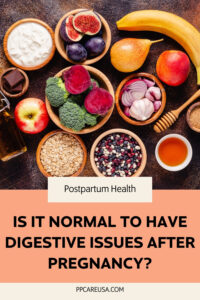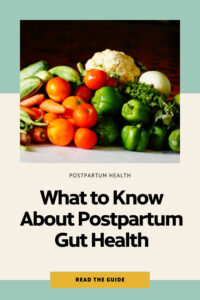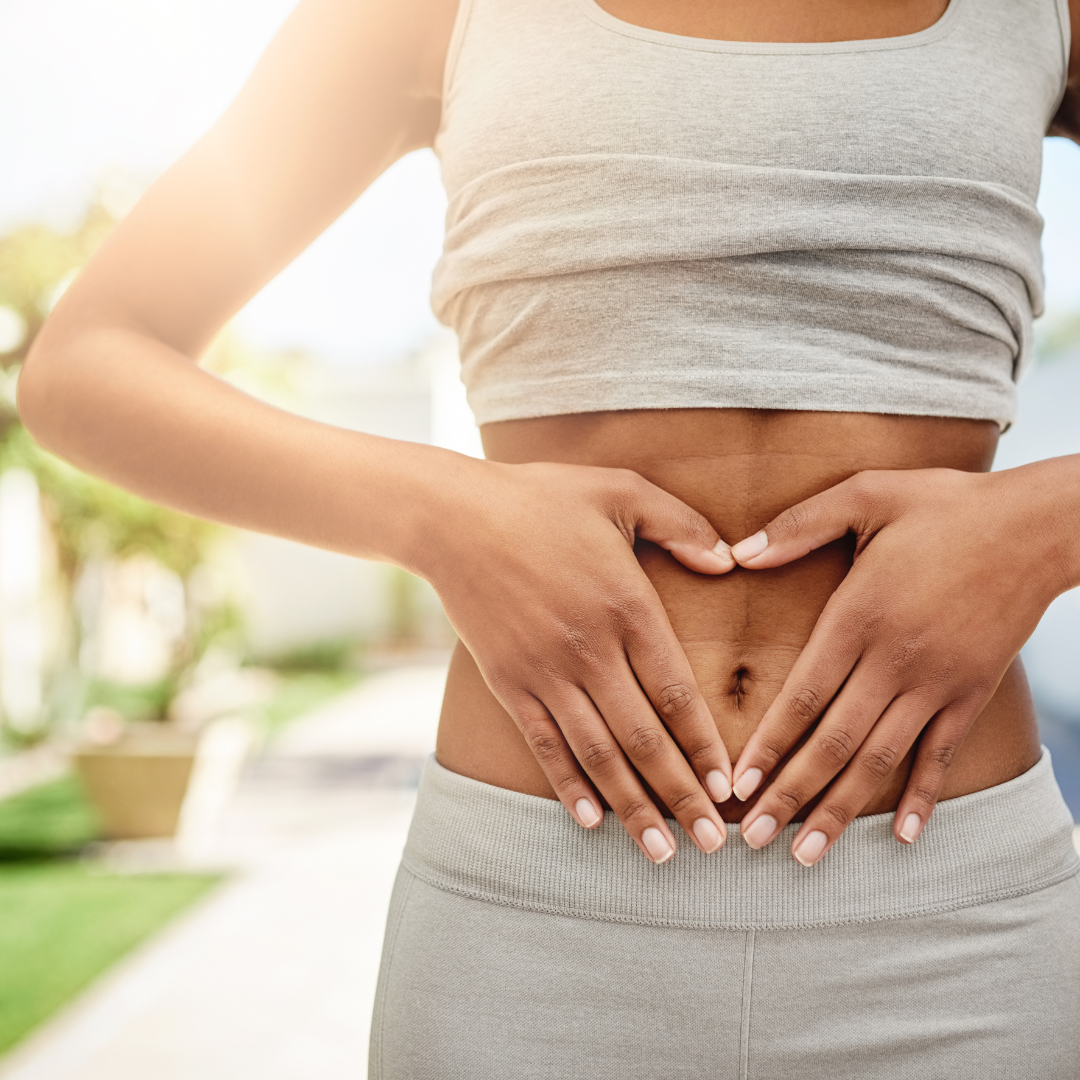As a nurse practitioner who has worked with countless postpartum mamas, I often hear the same concerns: “Why am I so tired all the time?” “Why do I feel so overwhelmed, even on good days?” or “Is it normal to feel like my emotions are all over the place?”
The postpartum journey is beautiful but also filled with unexpected twists and turns. It’s a time when your body and mind are healing, adjusting, and finding balance again. And here’s the part that might surprise you: your gut health plays a huge role in how you feel—physically, mentally, and emotionally.
A Story of Postpartum Gut Issues
Let me share a story about one of my patients, “Amanda.” After her second baby, Amanda came to me feeling utterly drained. She described her energy levels as “lower than rock bottom” and shared that her mood swung from teary to irritable almost daily. Despite eating what she thought was a healthy diet and trying to get rest, Amanda felt stuck in a fog.
When we dove deeper, we discovered she had been skipping meals, relying on caffeine to get through the day, and eating whatever she could grab quickly—usually processed snacks or sugary treats. Amanda’s symptoms were a red flag for poor postpartum gut health, which, as I’ll explain, can significantly impact your energy and mood.
Why Your Gut Health Matters in Postpartum Mood and Energy Levels
Your gut isn’t just about digestion. It’s the command center for many systems in your body, including your mood, immune function, and energy levels. Here’s why:
- Serotonin Production: Nearly 90% of your body’s serotonin—a key neurotransmitter for mood regulation—is produced in the gut.
- Stress and Digestion: When you’re stressed (and what new mama isn’t?), your gut can become inflamed, affecting how you absorb nutrients and produce essential feel-good chemicals.
- The Microbiome: The gut is home to trillions of bacteria that influence everything from your immune system to your mental health.
The postpartum period is a critical time for gut health because the hormonal and physical changes your body experiences can leave you more vulnerable to gut imbalances.
Is it Normal to Have Digestive Issues After Pregnancy?
While it’s common for mamas to experience digestive issues after pregnancy, this doesn’t have to be your new normal. Your body undergoes incredible changes during pregnancy and childbirth, and your digestive system isn’t immune to the impact.
Hormonal fluctuations, changes in abdominal pressure, and the physical toll of childbirth can all contribute to symptoms like bloating, constipation, gas, or even diarrhea in the postpartum period. Additionally, the healing process—whether from a vaginal delivery or C-section—can temporarily affect your gut health.
For many new moms, stress and lack of sleep exacerbate digestive discomfort. When you’re not resting well, your gut-brain connection can be disrupted, which may lead to sluggish digestion or sensitivity to certain foods.
If you’re breastfeeding, your nutrient needs increase, and your body might signal deficiencies through digestive upset. It’s also common for the postpartum diet to lack fiber and hydration as busy moms prioritize feeding their baby over their own meals, which can lead to constipation.
The good news is that with some intentional changes, your digestive health can improve.
What the Research Says About Gut Health and Mood
Studies have shown a clear connection between gut health and mental well-being. In one study of over 7,000 adolescents, those with poor diets were 79% more likely to experience depression.
Similarly, women following a standard American diet (SAD) are 30% more likely to suffer from mental health disorders.
As Amanda’s story highlights, many postpartum mamas unknowingly fall into the SAD diet—relying on processed snacks and caffeine to power through their days.
But here’s the good news: small, intentional changes to your diet can have a big impact on your mood and energy.
Practical Tips to Support Your Gut and Mind
Here’s what I often recommend to postpartum mamas looking to feel more balanced:
1. Eat Gut-Friendly Foods
Your gut thrives on real, nutrient-rich foods. Focus on:
- Fiber-Rich Choices: Oats, lentils, broccoli, carrots, and leafy greens help nourish good bacteria in your gut.
- Fermented Foods: Yogurt, kefir, sauerkraut, and kimchi introduce beneficial probiotics to your system.
- Gut-Healing Foods: Bone broth, garlic, onions, and leeks are rich in prebiotics, which feed healthy gut bacteria.
Amanda started adding a bowl of oatmeal with berries in the morning and a side of leafy greens to her lunch. Within weeks, she noticed an improvement in her energy levels and fewer emotional ups and downs.
Not to mention, she was able to feel fuller for longer periods of time because she was actually getting the nutrients she needed, so her postpartum weight retention greatly improved.
2. Limit Gut Disruptors
Certain foods can harm your gut and your mood. Try to:
- Avoid ultra-processed foods, sugary snacks, and fried options.
- Limit alcohol and caffeine, which can disrupt your gut lining and exacerbate anxiety.
- Watch for artificial sweeteners like aspartame or sucralose, which can negatively affect gut bacteria.
For Amanda, swapping her second cup of coffee for herbal tea made a noticeable difference. “I didn’t realize how jittery I felt until I stopped,” she said.
3. Manage Stress
Stress has a direct impact on your gut and mental health. Incorporate small stress-reducing habits into your day:
- Start your morning with deep breathing or a five-minute meditation.
- Take a short walk outside, even if it’s just around your yard.
- Journal your thoughts to release pent-up emotions.
One of Amanda’s favorite changes was taking five minutes every evening to write down three things she was grateful for. It became a grounding ritual that helped her end each day on a positive note.
4. Prioritize Sleep
Sleep is crucial for both gut and brain health. Aim for 7-8 hours a night if possible (or sneak in naps when your baby naps). If sleep feels elusive, try these tips:
- Stick to a consistent bedtime routine.
- Avoid screens 1-2 hours before bed to support melatonin production.
- Keep your bedroom cool and dark for optimal rest.
Finding Balance While Improving Gut Health Postpartum
As a new mom, it’s easy to feel overwhelmed by the pressure to “fix everything.” But supporting your gut and mental health doesn’t have to mean a complete lifestyle overhaul. Start small. Pick one meal, one habit, or one moment of the day to focus on.
For Amanda, it was as simple as drinking a glass of water before her morning coffee. That one small habit snowballed into other positive changes, and within a few months, she felt like a new person.
A Note on Supplements and Medications
While dietary changes can make a significant difference, it’s important to acknowledge that some postpartum conditions may require additional support.
If you’re struggling with severe depression or anxiety, don’t hesitate to reach out to Postpartum Care USA to get a personalized assessment of your needs so that you know xactly what diet and lifestyle changes you should make to improve your physical and mental health.
Supplements like probiotics or omega-3s can also be helpful but should be used under professional guidance.
You Don’t Have to Live with Bad Digestion Postpartum
The postpartum journey is as much about taking care of yourself as it is about caring for your baby. Your gut holds the key to better energy, improved mood, and overall wellness.
By nourishing it with the right foods, managing stress, and making intentional choices, you can create a foundation for lasting health.
Remember, mama, you’re not alone in this journey. Your body is resilient, your mind is strong, and you have the power to take small steps toward feeling better every day. Start today with one gut-friendly habit—and see how it transforms your postpartum experience.
References:
Pin This For Later:



Postnatal Depletion
Meet the Team
Our Services
Supplements
A virtual healthcare clinic that helps postpartum mamas recover from postnatal depletion syndrome with a holistic approach.

Get in touch